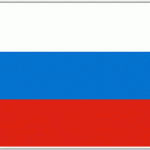DATA NEWS We love data!
Russians hungry, Indians mobile and Canadians polite
Here’s some numbers that reveal what a weird and wonderful world we live in from a data point of view Russia It’s nearly impossible to believe President Vladimir Putin maintains his popularity in Russia. His ratings remains at 80 per cent, despite these facts:
- The rouble has lost more than half of its value
- The mainstay of the economy – oil – is at a 12 year low and has already lost 20 per cent of its value this year
- Inflation has risen from 5 per cent to 16 per cent
- The economy is contracting after six years of improvement
- Russians’ purchasing power has dropped to 1990s levels
- 21.7 million people, or about 15 percent of the population, are living beneath the subsistence level, according to the Federal Statistics Service.
- A survey by pollsters Levada Centre in October reported 80 percent of Russians agreed that the country was in economic crisis and 58 percent said they cut spending on food.

President Putin has shifted the blame for his country’s economic woes onto the Americans, the Ukrainians and more recently the Turks, but patriotic military adventurism won’t last long if food lines start forming outside supermarkets
World on the move
As you might image India accounts for the world’s greatest number of people living outside its borders, with 16 million people residing elsewhere. Next comes Mexico with 12 million, according to a new United Nations survey.
Conducted by the UN Department of Economic and Social Affairs, the survey revealed that there were 244 million international migrants in 2015, an increase of 41 per cent as compared to 2000. What it did show was that international migration had grown faster than the world’s population.
And where did they all go you ask? The United States has ended up with one-fifth of the world’s total migrants. It is followed by Germany, Russia, Saudi Arabia, the United Kingdom and the United Arab Emirates. Two-thirds of international migrants were found to be staying in Europe (76 million) or Asia (75 million).
These numbers will soon have to be updated to reflect the migration surge into Europe from the Mid-East but they still make fascinating reading.
Canadians are nicer
Canadians, just like Australians, tend to be stereotyped on the world stage as generally nice polite people but without a great sense of humor.
Well they can now take some pride in the fact that the anecdotal evidence of Canadians being polite is true. Two doctoral Canadian students at McMaster University have compared millions of tweets from the United States and Canada from 2015 and compared the top 10 percent of words used in the two countries.
Overall Canadian used ‘nicer’ words while Americans let’s says were more direct to such a point that some could not be shown on the university’s cloud cluster examples.
High-rating Canadian words included “great,” “favourite” and naturally “agree.” American tweet words, some of which were censored, included “damn,” “hate,” “ass,” and others with racial connotations.

